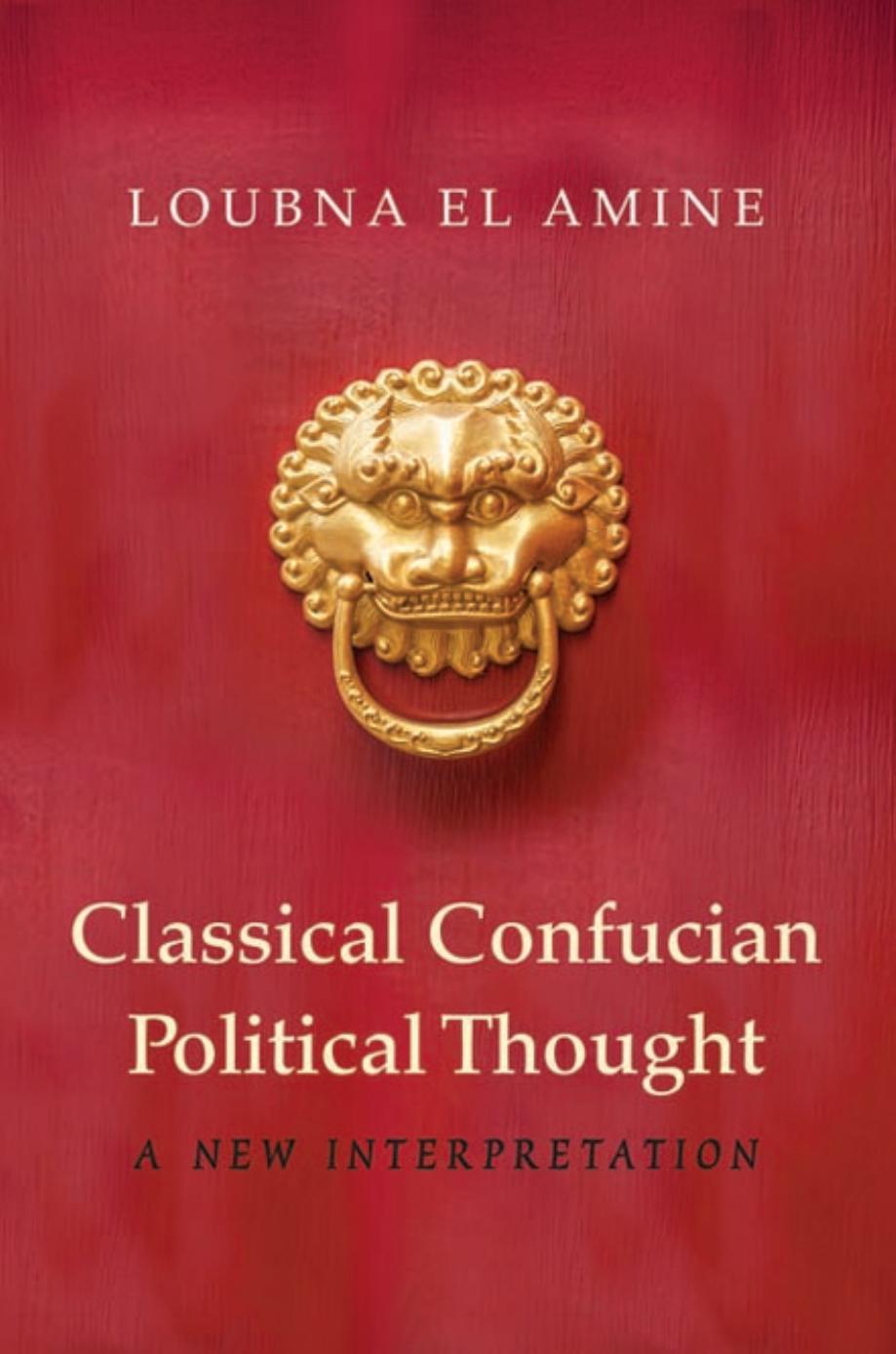Classical Confucian Political Thought : A New Interpretation by El Amine Loubna

Author:El Amine, Loubna [El Amine, Loubna]
Language: eng
Format: epub, pdf
Publisher: Princeton University Press
Published: 2015-10-10T07:00:00+00:00
CHAPTER 4
Rulers and Ministers
The ruler looms large in Classical Confucian political thought. He is after all the son of Heaven (tianzi 天子), the magnet toward which all the actors and events of the realm are pointed.1 As I suggested at the end of the previous chapter, this portrait is misleading. It misconstrues the influence the ruler has on the workings of the realm. As I argued, the Confucian reliance on rituals as an institutional mechanism for political regulation raises the question of the role of the ruler in regulating society, especially as rituals are not of his creation but are inherited through the generations. In this chapter, I ask what exactly is the “job description” of the ruler in the Confucian vision of government, especially vis-à-vis his ministers, which raises the concomitant question of the qualities required for political rulership.
The first part of the chapter focuses on Xunzi, since he offers the most sustained view of the role of ministers in government. I will show here that in Xunzi’s vision of a ritual-centered, patterned order, the ruler plays an essential but limited role; it is ministers who are assigned the responsibility of running day-to-day government. I also show that a similar distinction between virtuous kings and hegemons applies in the case of ministers: while sage ministers are favored, meritorious ministers are also accepted. As with the discussion of hegemons in Chapter 2, I argue that this appreciation of less-than-virtuous ministers reveals Xunzi’s concern with political order and his recognition that a basic level of order is all that can be achieved at times.
In the section that follows, I broaden the inquiry to the three Confucians and show that, even though the Analects and the Mencius do not share the same ideal vision of government offered by the Xunzi, all three texts share the thought that it is permissible, even obligatory, for ministers to remonstrate against rulers. This highlights the importance of ministers in the former two texts as well.
In the last part of the chapter, I broaden the inquiry from the question of the division of labor between ruler and ministers to revisiting the question of the relationship between virtue and government in the Confucian conception of politics.
Download
Classical Confucian Political Thought : A New Interpretation by El Amine Loubna.pdf
This site does not store any files on its server. We only index and link to content provided by other sites. Please contact the content providers to delete copyright contents if any and email us, we'll remove relevant links or contents immediately.
| Anthropology | Archaeology |
| Philosophy | Politics & Government |
| Social Sciences | Sociology |
| Women's Studies |
The remains of the day by Kazuo Ishiguro(9000)
Tools of Titans by Timothy Ferriss(8398)
Giovanni's Room by James Baldwin(7347)
The Black Swan by Nassim Nicholas Taleb(7131)
Inner Engineering: A Yogi's Guide to Joy by Sadhguru(6797)
The Way of Zen by Alan W. Watts(6615)
The Power of Now: A Guide to Spiritual Enlightenment by Eckhart Tolle(5784)
Asking the Right Questions: A Guide to Critical Thinking by M. Neil Browne & Stuart M. Keeley(5775)
The Six Wives Of Henry VIII (WOMEN IN HISTORY) by Fraser Antonia(5516)
Astrophysics for People in a Hurry by Neil DeGrasse Tyson(5191)
Housekeeping by Marilynne Robinson(4449)
12 Rules for Life by Jordan B. Peterson(4307)
Ikigai by Héctor García & Francesc Miralles(4275)
Double Down (Diary of a Wimpy Kid Book 11) by Jeff Kinney(4273)
The Ethical Slut by Janet W. Hardy(4258)
Skin in the Game by Nassim Nicholas Taleb(4250)
The Art of Happiness by The Dalai Lama(4130)
Skin in the Game: Hidden Asymmetries in Daily Life by Nassim Nicholas Taleb(4007)
Walking by Henry David Thoreau(3963)
